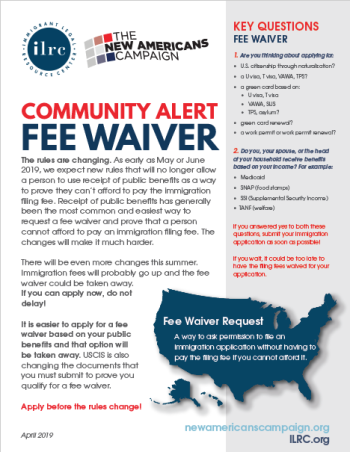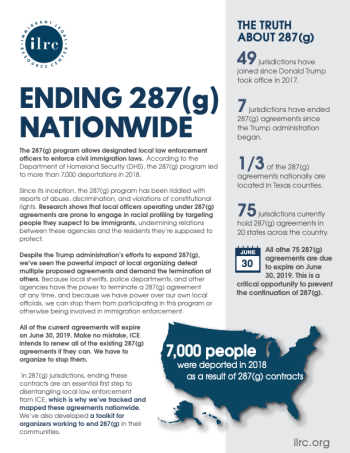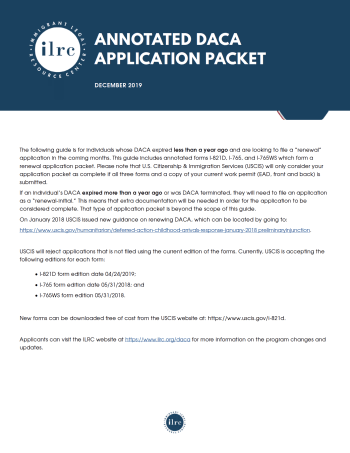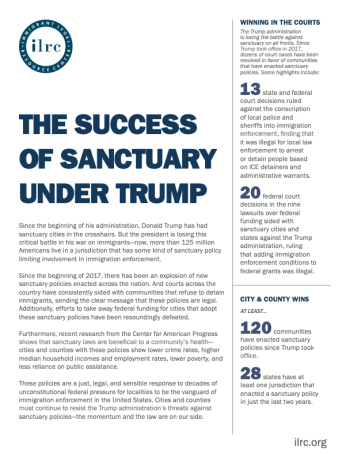This resource, co-authored by the Immigrant Justice Network (IJN) and the National Immigrant Justice Center (NIJC), discusses the immigration consequences of discriminatory practices within the criminal legal system. IJN is a network comprised of the ILRC, the Immigrant Defense Project (IDP), and the National Immigration Project of the National Lawyers Guild.
This resource, co-authored by the Immigrant Justice Network (IJN) and the National Immigrant Justice Center (NIJC), discusses the immigration consequences of discriminatory practices within the criminal legal system. IJN is a network comprised of the ILRC, the Immigrant Defense Project (IDP), and the National Immigration Project of the National Lawyers Guild.
This resource, co-authored by the Immigrant Justice Network (IJN) and the National Immigrant Justice Center (NIJC), discusses how mandatory detention impacts individuals. IJN is a network comprised of the ILRC, the Immigrant Defense Project (IDP), and the National Immigration Project of the National Lawyers Guild.

This community alert provides key information about upcoming changes to the fee waiver process, which allows some applicants to submit their immigration applications without having to pay the filing fee if they cannot afford it. In the coming months, one of the easiest and most straightforward ways of proving that you qualify for a fee waiver request will be going away. Find out more information about this upcoming change and submit your application now if you might qualify for a fee waiver!

The 287(g) program allows designated local law enforcement officers to enforce civil immigration laws. According to the Department of Homeland Security (DHS), the 287(g) program led to more than 7,000 deportations in 2018.

The 287(g) program allows designated local law enforcement .officers to enforce civil immigration law s According to the Department of Homeland Security (DHS), the 287(g) program led to more than 7,000 deportations in 2018.

This guide is for individuals whose DACA expired after September 5, 2016 and are looking to file a “renewal” application in the coming months. The guide includes annotated forms I-821D, I-765 and I-765ws which form a renewal application packet. If an individual’s DACA expired on or before September 5, 2016 or was DACA terminated, they will need to file an application as a “renewal-initial.” This means that extra documentation will be needed in order for the application to be considered complete. That type of application packet is beyond the scope of this guide.
Approximately 700,000 people are currently registered in the DACA program and have seen significant changes and threats to the program. This webinar will present an overview of the current status of DACA as well as tips on renewals and exploring other immigration options for DACA recipients. The webinar will also provide an update on pending litigation and what it might mean for the future of the program and how DACA recipients can prepare for different outcomes. Finally, presenters will provide an update on legislative efforts and identify opportunities for advocacy.
Over the past four years, working with partner organizations throughout California and nationally, the ILRC has helped advocate and pass a series of reforms at the local and state levels that advance the rights of both citizens and noncitizens and connect the dots between the criminal and immigrant justice movements. This graphic describes some of these campaigns. If you would like support leading similar policy efforts of your own, please feel free to reach out to Rose Cahn, rcahn@ilrc.org.

In spite of the constant attacks on sanctuary policies from the current administration, these policies continue to spread, and continue to win in the courts. More than 120 new sanctuary-type laws have been enacted since January 2017, and at least 20 federal court rulings have found in favor of jurisdictions that limit their assistance or involvement in immigration enforcement.